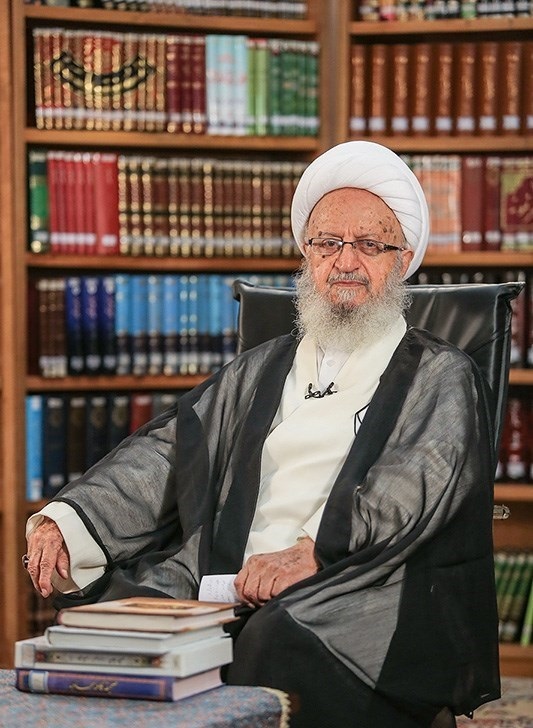|
Predestination In Islam
''Qadar'' ( ar, قدر, transliterated ''qadar'', meaning literally "power",J. M. Cowan (ed.) (1976). ''The Hans Wehr Dictionary of Modern Written Arabic''. Wiesbaden, Germany: Spoken Language Services. but translated variously as: "Fate", "Divine Fore-ordainment", "Predestination," "Divine Decree", "Decree" of Allah", "Preordainment") is the concept of Divine Destiny in Islam. As God is all-knowing and all-powerful, everything that has happened and will happen in the universe—including sinful human behavior—is not only known but commanded by him. Guillaume, ''Islam'', 1978: p.132 At the same time, human beings are responsible for their actions, and will be rewarded or punished accordingly on Judgement Day. Predestination/Divine Destiny is one of Sunni Islam's six articles of faith, (along with belief in the Oneness of Allah, the Revealed Books, the Prophets of Islam, the Day of Resurrection and Angels). Since many things that happen on earth as a part of Allah's ... [...More Info...] [...Related Items...] OR: [Wikipedia] [Google] [Baidu] |
Qadariyya
Qadariyyah ( ar, قدرية, Qadariyya), also Qadarites or Kadarites, from (), meaning "power"); was originally a derogatory term designating early Islamic theologians who rejected the concept of predestination in Islam, ''qadr'', and asserted that humans possess absolute free will, making them responsible for their actions, justifying divine punishment and absolving God of responsibility for evil in the world. Some of their doctrines were later adopted by the Mu'tazilis and rejected by the Ash'aris. They argued that evil actions of human beings could not be decreed by God, as they would have to be if there was no free will and all events in the universe were determined by God. Qadariyyah was one of the first philosophical schools in Islam. The earliest document associated with the movement is the pseudoepigraphical text ''Risala'' attributed to Hasan al-Basri, which was composed between 75 AH/694 CE and 80/699, though debates about free will in Islam probably predate this text ... [...More Info...] [...Related Items...] OR: [Wikipedia] [Google] [Baidu] |
Day Of Resurrection
In Islam, "the promise and threat" () of Judgment Day ( ar, یوم القيامة, Yawm al-qiyāmah, Day of Resurrection or ar, یوم الدین, italic=no, Yawm ad-din, Day of Judgement), when "all bodies will be resurrected" from the dead, and "all persons" are "called to account" for their deeds and their faith during their life on earth. It has been called "the dominant message" of the holy book of Islam, the Quran, Smith & Haddad, ''Islamic Understanding'', 1981: p.63 and resurrection and judgement the two themes "central to the understanding of Islamic eschatology". Smith & Haddad, ''Islamic Understanding'', 1981: p.64 Judgement Day is considered a fundamental tenet of faith by all Muslims, and one of the six articles of Islamic faith. The trials, tribulations and details associated with it are detailed in the Quran and the hadith (sayings of Muhammad); these have been elaborated on in creeds, Quranic commentaries ( tafsịrs), theological writing, Smith & Haddad ... [...More Info...] [...Related Items...] OR: [Wikipedia] [Google] [Baidu] |
Iman (Islam)
Iman ( ''ʾīmān'', lit. faith or belief) in Islamic theology denotes a believer's faith in the metaphysical aspects of Islam.Farāhī, Majmū‘ah Tafāsīr, 2nd ed. (Faran Foundation, 1998), 347. Its most simple definition is the belief in the six articles of faith, known as ''arkān al-īmān''. The term ''iman'' has been delineated in both the Quran and ''hadith''. According to the Quran, iman must be accompanied by righteous deeds and the two together are necessary for entry into Paradise. In the ''hadith'', ''iman'' in addition to ''Islam'' and '' ihsan'' form the three dimensions of the Islamic religion. There exists a debate both within and outside Islam on the link between faith and reason in religion, and the relative importance of either. Some scholars contend that faith and reason spring from the same source and hence must be harmonious. Etymology In Arabic, ''iman'' ( ''ʾīmān'') means "" or "". It is the verbal noun of آمَنَ, "to have faith" or "t ... [...More Info...] [...Related Items...] OR: [Wikipedia] [Google] [Baidu] |
Future
The future is the time after the past and present. Its arrival is considered inevitable due to the existence of time and the laws of physics. Due to the apparent nature of reality and the unavoidability of the future, everything that currently exists and will exist can be categorized as either permanent, meaning that it will exist forever, or temporary, meaning that it will end. In the Occidental view, which uses a linear conception of time, the future is the portion of the projected timeline that is anticipated to occur. In special relativity, the future is considered absolute future, or the future light cone. In the philosophy of time, presentism is the belief that only the present exists and the future and the past are unreal. Religions consider the future when they address issues such as karma, life after death, and eschatologies that study what the end of time and the end of the world will be. Religious figures such as prophets and diviners have claimed to see in ... [...More Info...] [...Related Items...] OR: [Wikipedia] [Google] [Baidu] |
Insha'Allah
''In sha'Allah'' (; ar, إِنْ شَاءَ ٱللَّٰهُ, ʾIn shāʾ Allāh ), also spelled In shaa Allah, InshAllah, Insya Allah and İnşAllah is an Arabic language expression meaning "if god wills" or "god willing". It was mentioned in the Quran which required the use of it when speaking on future events. The phrase is commonly used by Muslims, Arab Christians and Arabic-speakers of other religions to refer to events that one hopes will happen in the future. It expresses the belief that nothing happens unless god wills it, and that his will supersedes all human will. Other languages Adyghe In Adyghe, the terms , and , are widely used by Circassians, with the meaning "hopefully" or "if god wills". Asturleonese, Galician, Spanish and Portuguese The word in Asturleonese, Galician (more rarely in this language ) and Portuguese. In Spanish, the word is . They all come from the Arabic ( (using a different word for "if"), from the time of Muslim presence and rule ... [...More Info...] [...Related Items...] OR: [Wikipedia] [Google] [Baidu] |
ق د ر
Qoph ( Phoenician Qōp ) is the nineteenth letter of the Semitic scripts. Aramaic Qop is derived from the Phoenician letter, and derivations from Aramaic include Hebrew Qof , Syriac Qōp̄ ܩ and Arabic . Its original sound value was a West Semitic emphatic stop, presumably . In Hebrew numerals, it has the numerical value of 100. Origins The origin of the glyph shape of ''qōp'' () is uncertain. It is usually suggested to have originally depicted either a sewing needle, specifically the eye of a needle (Hebrew and Aramaic both refer to the eye of a needle), or the back of a head and neck (''qāf'' in Arabic meant "nape"). According to an older suggestion, it may also have been a picture of a monkey and its tail (the Hebrew means "monkey"). Besides Aramaic ''Qop'', which gave rise to the letter in the Semitic abjads used in classical antiquity, Phoenician ''qōp'' is also the origin of the Latin letter Q and Greek Ϙ (''qoppa'') and Φ (''phi''). Hebrew Qof Th ... [...More Info...] [...Related Items...] OR: [Wikipedia] [Google] [Baidu] |
Naser Makarem Shirazi
Grand Ayatollah Naser Makarem Shirazi (, born 25 February 1927 in Shiraz, Iran) is an Iranian Shia '' marja''' and religious leader. Biography He was born in the city of Shiraz, Iran. According to his website, his father was Ali Mohammad, his grandfather was Mohammad Karim, his forefather was Mohammad Baqer and his progenitor was Mohammad Sadeq. According to Parvaneh Vahidmanesh one of opponents of the Iranian regime, he has Jewish ancestors. He finished his school in Shiraz. He started his formal Islamic studies at the age of 14 in the Agha Babakhan Shirazi seminary. After completing the introductory studies, he started studying jurisprudence (''fiqh'') and its principles (''usool al-fiqh''). He made rapid progress and finished studying the complete levels of introductory and both the levels of the intermediate Islamic studies in approximately four years. During this time, he also taught at the Islamic seminary in Shiraz. At the age of 18, he formally entered the theological ... [...More Info...] [...Related Items...] OR: [Wikipedia] [Google] [Baidu] |
Shi'i
Shīʿa Islam or Shīʿīsm is the second-largest branch of Islam. It holds that the Islamic prophet Muhammad designated ʿAlī ibn Abī Ṭālib as his successor (''khalīfa'') and the Imam (spiritual and political leader) after him, most notably at the event of Ghadir Khumm, but was prevented from succeeding Muhammad as the leader of the Muslims as a result of the choice made by some of Muhammad's other companions (''ṣaḥāba'') at Saqifah. This view primarily contrasts with that of Sunnī Islam, whose adherents believe that Muhammad did not appoint a successor before his death and consider Abū Bakr, who was appointed caliph by a group of senior Muslims at Saqifah, to be the first rightful (''rāshidūn'') caliph after Muhammad. Adherents of Shīʿa Islam are called Shīʿa Muslims, Shīʿītes, or simply Shīʿa or Shia. Shīʿa Islam is based on a ''ḥadīth'' report concerning Muhammad's pronouncement at Ghadir Khumm.Esposito, John. "What Everyone Needs to K ... [...More Info...] [...Related Items...] OR: [Wikipedia] [Google] [Baidu] |
Shi'i Islam
Shīʿa Islam or Shīʿīsm is the second-largest branch of Islam. It holds that the Islamic prophet Muhammad designated ʿAlī ibn Abī Ṭālib as his successor (''khalīfa'') and the Imam (spiritual and political leader) after him, most notably at the event of Ghadir Khumm, but was prevented from succeeding Muhammad as the leader of the Muslims as a result of the choice made by some of Muhammad's other companions (''ṣaḥāba'') at Saqifah. This view primarily contrasts with that of Sunnī Islam, whose adherents believe that Muhammad did not appoint a successor before his death and consider Abū Bakr, who was appointed caliph by a group of senior Muslims at Saqifah, to be the first rightful (''rāshidūn'') caliph after Muhammad. Adherents of Shīʿa Islam are called Shīʿa Muslims, Shīʿītes, or simply Shīʿa or Shia. Shīʿa Islam is based on a ''ḥadīth'' report concerning Muhammad's pronouncement at Ghadir Khumm.Esposito, John. "What Everyone Needs to K ... [...More Info...] [...Related Items...] OR: [Wikipedia] [Google] [Baidu] |
Twelver Theology
The theology of Twelver Shi'ism contains the five principles of Shia Islam known as ''Uṣūl ad-Dīn'' ( ar, أصول الدين عند الشيعة). Usul al-dín is an Arabic Islamic term which literally translates as 'principles of the faith', roughly interpretable as 'theology'. Definition The Shia roots of religion are a set of theological beliefs, in contrast to the ten practices prescribed in the Shia ancillaries of the faith. Resalah All books of Resalah start with an explicit disclaimer stating that no proof shall be given for any of the points in the Usul al-dín. The Marja' argue that it is permissible to imitate in matters of practical Islam, for example, how one is supposed to do Salat, without being familiar with evidence and arguments for the conclusions. However, they argue that the matters in the roots of religion are much too important to be merely imitated, and it is the responsibility of each individual to make themselves personally familiar with the ar ... [...More Info...] [...Related Items...] OR: [Wikipedia] [Google] [Baidu] |
Muʿtazila
Muʿtazila ( ar, المعتزلة ', English: "Those Who Withdraw, or Stand Apart", and who called themselves ''Ahl al-ʿAdl wa al-Tawḥīd'', English: "Party of ivineJustice and Oneness f God); was an Islamic group that appeared in early Islamic history and were known for their neutrality in the dispute between Alī and his opponents after the death of the third caliph, Uthman. By the 10th century CE the term had also come to refer to an Islamic school of speculative theology (kalām) that flourished in Basra and Baghdad (8th–10th century).Mutazilah ", ''''. The later Mu'tazila school developed an |



.png)
_-_BAE09705.jpg)